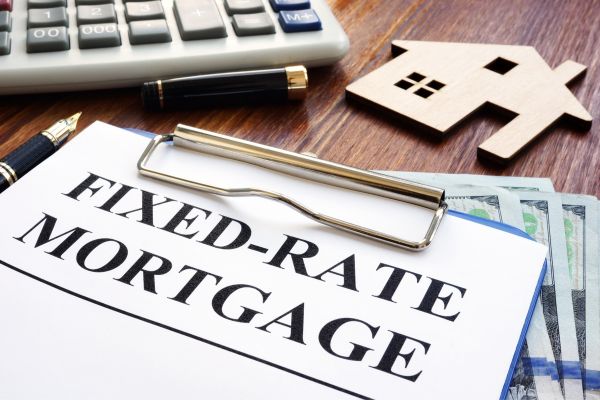Navigating the world of home financing can be overwhelming, especially when faced with a pivotal decision: fixed vs. variable rate mortgages. This choice isn’t just a matter of numbers—it can significantly impact your financial future. Understanding how these two mortgage types differ, and what they offer, is essential for any potential homeowner or property investor. Whether you’re a first-time buyer or looking to refinance, grasping the nuances of fixed and variable rate mortgages could save you thousands over the life of your loan.
Understanding Fixed Rate Mortgages
A fixed rate mortgage is a loan where the interest rate remains unchanged for the duration of the term. This means your monthly mortgage payment stays consistent, regardless of fluctuations in the broader economy. For many homeowners, this predictability offers peace of mind. Knowing exactly how much you will owe each month helps with budgeting and long-term planning.
One of the most appealing aspects of fixed rate mortgages is their stability. In a climate where interest rates are expected to rise, locking in a rate can be a wise decision. It provides a shield against economic volatility and inflationary pressures. While fixed rate mortgages may come with slightly higher initial rates compared to variable options, the security they offer is often worth the premium.
However, it’s important to consider the trade-off. If market rates drop significantly, borrowers locked into a fixed rate won’t benefit from lower monthly payments unless they refinance, which can involve additional fees and time-consuming paperwork.
Exploring Variable Rate Mortgages
Variable rate mortgages, sometimes referred to as adjustable rate mortgages, work differently. Their interest rates fluctuate over time, usually in relation to a benchmark index or the lender’s prime rate. This means your mortgage payments can rise or fall, depending on market conditions.
Initially, variable rate mortgages often come with a lower interest rate compared to fixed alternatives. This can be especially attractive to borrowers looking to minimize their upfront costs or those planning to sell or refinance before potential rate increases occur. For some, the risk of changing payments is worth the initial savings.
However, variable rate mortgages carry a level of unpredictability. As interest rates rise, so do your monthly payments. This can strain budgets and create financial stress, especially for those with tight margins. While some loans come with rate caps to limit increases, the uncertainty can still be unsettling for many borrowers.
The Financial Impact of Each Option
When comparing fixed vs. variable rate mortgages, it’s essential to evaluate how each option aligns with your financial goals and risk tolerance. A fixed rate mortgage might be more suitable if you’re planning to stay in the home long-term and want the security of stable payments. On the other hand, a variable rate mortgage may be ideal if you anticipate short-term ownership or if you’re confident that rates will remain low for the foreseeable future.
It’s also important to consider the broader economic environment. In periods of low or declining interest rates, variable mortgages can offer significant cost savings. Conversely, during times of economic growth and inflation, fixed rates become more advantageous as they insulate borrowers from rising costs.
Another critical factor is the amortization period and term of the loan. Fixed rate mortgages can offer more predictability over longer amortization schedules, making them suitable for those looking for consistency over time. Meanwhile, the potential for savings in the early years of a variable mortgage can be beneficial for those with shorter timelines or more flexibility in their financial plans.
Psychological and Lifestyle Considerations
Beyond the numbers, the psychological comfort that comes with a fixed rate mortgage cannot be overstated. For homeowners who value stability and dislike uncertainty, a fixed rate provides a sense of control over their financial future. There’s no second-guessing or recalculating monthly budgets based on interest rate trends.
Conversely, some borrowers are more financially agile and can handle—or even embrace—the unpredictability of a variable rate. If you’re someone who monitors market trends closely and has a flexible budget, you may find the variable option aligns well with your lifestyle and risk profile.
Choosing between fixed and variable also depends on your life stage and future plans. If you’re starting a family or entering a period of financial transition, a fixed rate can offer grounding. If you’re younger, with fewer financial commitments, a variable rate may allow you to maximize savings and invest elsewhere.
Refinancing and Flexibility
Another dimension to explore in the fixed vs. variable rate mortgages debate is refinancing potential. Homeowners with fixed rate mortgages may refinance to take advantage of lower rates, though this process often includes fees and possible penalties. Variable rate mortgage holders may find themselves in a better position to pivot as market conditions change, depending on the structure of their loan.
Flexibility is a key advantage of variable rate loans, particularly for those who plan to sell their home or pay off the mortgage early. Some variable rate mortgages come with lower prepayment penalties or offer more adaptable terms, making them an attractive choice for certain borrowers.
That said, flexibility should not come at the expense of financial security. The temptation of initial savings must be balanced with the potential for rate hikes that could double your monthly payment in extreme cases. It’s a delicate balance between seizing opportunity and managing risk.
Market Trends and Expert Opinions
Economic trends play a significant role in determining the right mortgage option. During periods of economic growth, interest rates typically rise, making fixed rate mortgages more appealing. In contrast, when central banks lower rates to stimulate the economy, variable rate mortgages can result in substantial savings.
Experts often recommend considering your personal financial forecast alongside economic indicators. If inflation and rate hikes are on the horizon, locking in a fixed rate might be prudent. However, if indicators suggest that rates will remain steady or decline, a variable rate could lead to meaningful long-term benefits.
It’s also worth consulting with a mortgage advisor who can help assess your individual situation, factoring in credit score, income stability, debt-to-income ratio, and long-term financial objectives.
Conclusion: Making the Right Choice for Your Future
Choosing between fixed vs. variable rate mortgages is not a one-size-fits-all decision. It involves a careful analysis of your financial situation, risk tolerance, and long-term goals. Fixed rate mortgages provide predictability and security, making them ideal for those who value stability. Variable rate mortgages offer potential savings and flexibility, better suited for borrowers who are comfortable navigating interest rate changes.
Ultimately, the best mortgage is the one that aligns with your unique financial circumstances and future plans. By understanding the key differences and evaluating your own needs, you can make an informed decision that supports your journey to homeownership with confidence.







